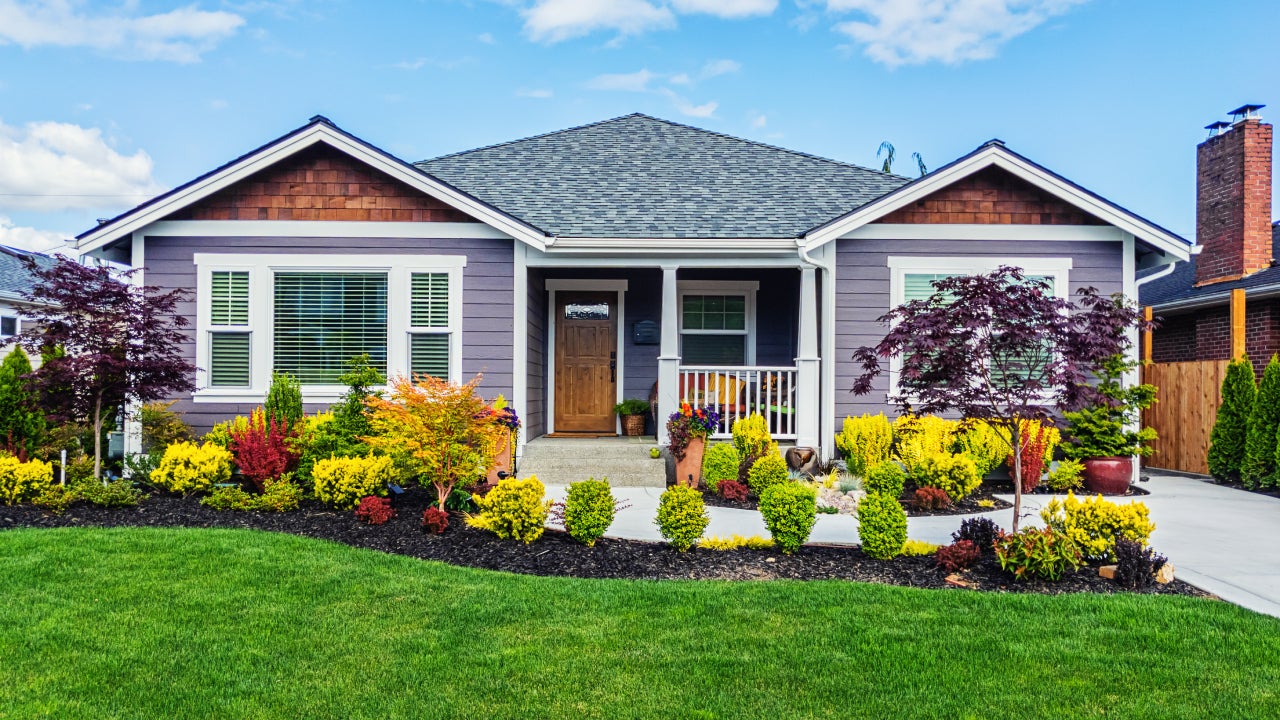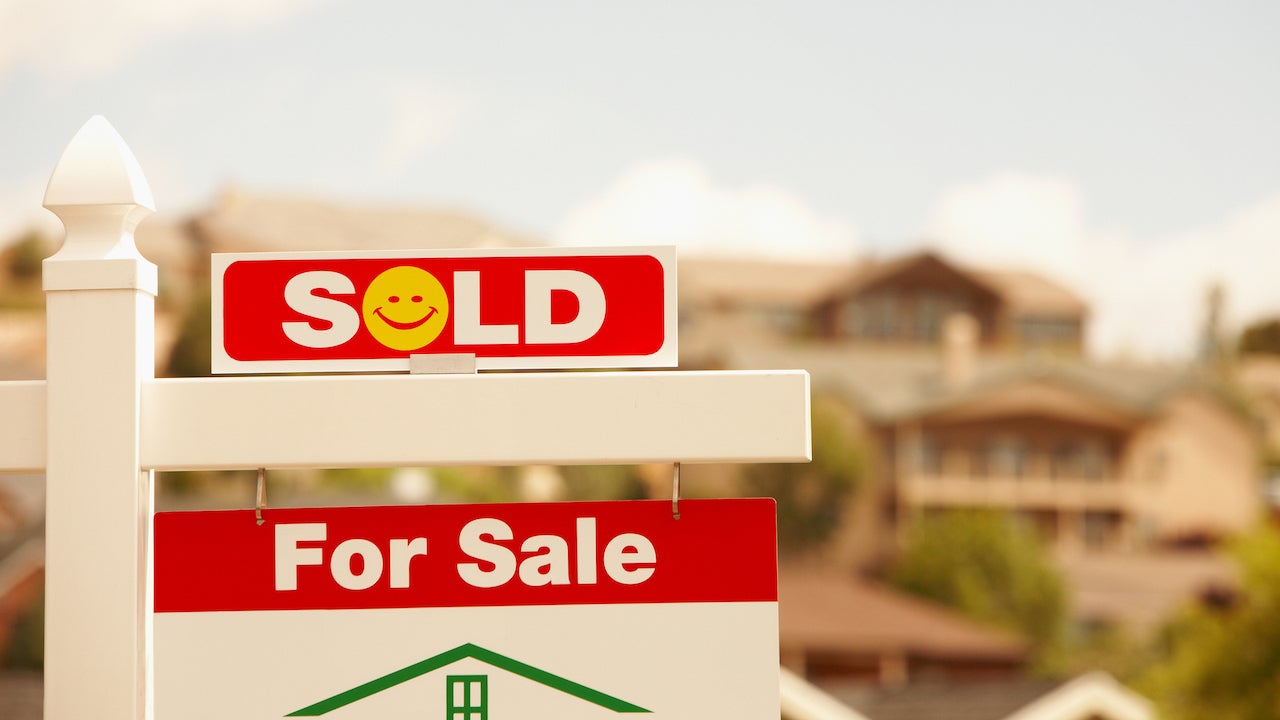Sell your home fast in California

The Golden State may be known for a laid-back lifestyle, but selling a home here doesn’t have to feel like waiting for the perfect wave. The longer a home sits on the market, the more challenging it becomes for the seller to move on with their life. If you’d like to speed up the process of selling your California house, read on for everything you need to know about the current California housing market.
How fast can you typically sell your house in California?
At the end of 2022, the median number of days it took to sell a home in California was 28 — a 16-day increase from just one year earlier, according to the California Association of Realtors (CAR). However, the timeline for selling can look very different depending on where in the Golden State your place is located. If you’re selling a house in San Diego, for example, the typical home takes just 20 days to move off the market. Head north to Napa, and sellers are looking at 57 days on the market.
If you’re trying to figure out the best time to sell a house in California, the answer varies depending on your local market. Traditionally, spring and early summer are considered the prime selling seasons. If you want to get more specific, real estate data firm ATTOM found that the month of May was the best, and if you want to get really granular, list on a Thursday. New listings that appear on Thursdays catch prospective buyers just as they’re ready to head out for weekend open houses. If you can get on their shortlists, you stand a better chance of spurring some immediate competition.
Working with an experienced local real estate agent can help you navigate the market as efficiently as possible. You don’t necessarily need one — people sell “by owner” all the time — but professional agents have knowledge and expertise that amateurs simply don’t. A listing agent’s job is to secure a deal that meets your needs, and if what you need is speed, they can help you work toward that. Interview several candidates to make sure you’re working with someone who understands your goal.
Need to sell even faster?
There are other options for getting to the finish line faster, too. Whether you want to move somewhere new within the Golden State or escape the high cost of living in California altogether, consider these routes:
- Sell for cash: To move at a faster pace, consider companies that buy houses for cash, like We Buy Houses (the name says it all). These firms are looking for a profit via quickly fixing and flipping a home or turning it into a rental property — plus, you don’t have to wait on a traditional buyer’s financing to be finalized. The upside: You’ll get a deal done quickly. The downside: You’ll likely make less cash. Time is money, after all, so these companies will pay you less in exchange for giving you the faster process.
- Find an iBuyer: The iBuying frenzy has been slowing down, but you may still be able to get an instant offer for your house. Opendoor, one of the biggest names in the business, is still actively buying homes in some of the best places to live in California, like Los Angeles, Sacramento and the San Francisco Bay Area.
- Price aggressively: Another option for getting a deal done quick? Undercut the market. It’s safe to say that a $750,000 listing in an area where the median price is $850,000, like San Diego, will turn some buyers’ heads. If you can afford the risk, you’ll likely attract more interest — you may even luck out and inspire a bidding war that brings the price back up to the median, or higher.
- Be flexible: You may need to compromise in the name of keeping things moving. For example, if the buyer uncovers some issues during their home inspection, be willing to make some concessions. Back-and-forth negotiation can create major delays, so a little flexibility can speed things along.
Selling your home in California
If you opt for a traditional, agent-assisted sale, be sure to think about these questions as you get started.
What should you fix before selling your home in California?
The best way to determine what, if any, repairs you should make before you list your home is to get a professional pre-listing inspection. This will likely cost around $500, but it’s a proactive way of identifying major issues before potential buyers see them. If there’s a problem with your roof or plumbing, for example, a buyer might request a credit to cover the repair on their own — or even walk away from the deal. However, don’t go crazy: It’s equally important to know what not to fix when you’re listing your home. Your agent can help you decide what to address and what not to bother with.
Is it worth upgrading your home before you sell?
The answer depends on how much the upgrades cost, and how much more they’ll net you when you sell. The reality is that most home renovations do not recoup 100 percent of their costs, so you may be better off skipping really major expenses. And buyers might not share your same taste, so it’s probably not worth sinking a ton of money into a specific look. Your best bet is to consider cheaper, easier ways to boost your home’s value — and don’t underestimate the value of curb appeal.
Should you pay to stage your home?
You may want to consider having a pro stage your home to get it ready for buyers. Staging is exactly what it sounds like: designing a scene that makes a buyer want to be a character on that stage. This might involve simply rearranging your existing furniture to make the rooms look more livable. Or it could be a bigger project that requires putting things in storage and renting different furniture. Your agent can advise you on whether staging can make a meaningful difference in your home’s value.
How should you price your listing?
Your agent will also help determine how much your home is worth, and thus how much your asking price should be. It’s important to recognize that property values might look quite a bit different now than they did just a year ago. For example, Redfin data shows that home prices in San Francisco dropped by more than 10 percent between January 2022 and January 2023. Shifts like that mean that an automated valuation model can spit out a very unrealistic figure. You’re better off looking at comps of recently sold properties in your neighborhood to get a sense of what buyers have been willing to hand over for a similar home — and a professional home appraisal is still the most accurate way to assess value.
What do you need to disclose to a buyer?
Every seller in the state of California has a legal obligation to share a lot of information with buyers. This includes intel about the condition of the property, the potential for additional taxes and the natural hazards that could impact it. You will need to complete a lengthy transfer disclosure statement that informs the buyer about a broad range of questions. Your real estate agent can help walk you through it. Be honest — otherwise, you could be liable for damages down the road.
Other paperwork you’ll likely need to take care of include:
- Natural hazard disclosure: This tells buyers whether the property is located in an area prone to flooding, fires or earthquakes.
- Megan’s Law disclosure: This allows buyers to access a database that includes information about registered sex offenders who reside in the area.
- Statewide buyer and seller advisory: A form that outlines the obligations of both buyers and sellers.
Outside of disclosure information, be prepared to prove that the property is indeed yours with a copy of the original purchase agreement, a signed deed and an affidavit of title. And depending on where you live, you may have additional local documents to complete. If you live in a neighborhood or a condo governed by a homeowners association, you will need to share the HOA bylaws and finances as well.
The closing
When closing day arrives, you have something to look forward to: your money. However, you don’t get to pocket the entire amount. For starters, if you have any outstanding mortgage debt, you’ll need to pay it off immediately. Plus, there are closing costs to cover.
Costs of selling a home in California
- Realtor commissions: The real estate agents who helped make the deal happen have to get paid. Realtor fees typically run about 6 percent of the purchase price, with 3 percent going to your agent and the other 3 percent to the buyer’s agent. The seller, however, is responsible for paying both of them. So, if you sell your home for $800,000, you would owe around $48,000 in commissions.
- Title insurance: In some parts of California, you may have to pay for title insurance. The cost will vary based on the purchase price.
- Transfer taxes: Budget an appropriate amount of money for paying to transfer the title or deed to the buyer. In most places across the state, transfer taxes are $1.10 per $1,000 of the purchase price. In some cities, though, rates are much higher: In Santa Monica, for example, sellers of properties that fetch less than $5 million pay $4.10 per $1,000. And in Oakland, sellers of properties that sell for between $300,000 and $2 million will pay $16.10 per $1,000.
- Escrow fees: You may also be charged service fees for an escrow account to manage the buyer’s earnest money.
- Attorney fees: If you hire a real estate attorney (which you should, even if you’re not legally required to), you will need to pay their fees at closing, too. The amount will vary, but it’s well worth it for legal peace of mind on a transaction this large.
- Capital gains taxes: Depending on how long you’ve lived in the home and how much profit you make on the sale, you may wind up taking a hit in the form of capital gains taxes. Property values in certain areas of California have soared over the past decade, so be mindful of the tax implications as you prepare to close, and consult with a tax professional if you’re not sure.
Next steps
Now that you have a better idea of the process of selling a home in California, it’s time to decide what kind of approach best suits your needs. Do some research on your local market to get a sense of the typical days on the market for a new listing — especially if you’re doing the tightrope walk of buying a home while selling your current one at the same time. If you have some time and want to get the best price possible, team up with a local real estate agent. If you’re in a rush or need the cash quickly, consider a homebuying company or iBuyer. No matter which route you decide to take, make sure you avoid these common mistakes when selling a home.
FAQs
-
Like much of the country, California is moving from a raging seller’s market toward a more balanced one, which means that sellers don’t have as much of an edge anymore. Median home prices across the state fell for the last four months of 2022, according to the California Association of Realtors, and homes are sitting on the market for longer now. So, while prices and demand are still high in most of the state, it’s not as good of a time to sell as it recently was.
-
The typical single-family home in California spent 28 days on the market at the end of 2022, according to data from the California Association of Realtors. If you’re in a rush, though, there are ways to accelerate the process. Real estate companies that buy houses for cash can get deals done much faster, and so can iBuyers, which operate in many markets across the state and often issue same-day offers.
-
Selling a home in California means complying with state and local disclosure requirements. These inform prospective buyers about potential risks, safety hazards and additional tax implications with the property. In addition, while you don’t technically need either a real estate agent or a real estate attorney, both of these roles provide important help in navigating compliance complexities.
-
That depends on where the property is located. According to the California Department of Insurance, sellers in southern California typically pay for a title insurance policy for the new owner. In northern California, though, the buyer usually foots the bill. Check with your real estate agent if you’re unsure of the rule in your area.
-
There is no state requirement to hire a real estate attorney in California. However, hiring a lawyer is a smart investment anyway. There is a lot of money at stake in any real estate transaction, and it’s worth the price to have a legal expert sign off on the details and make sure the contract is executed correctly.
Why we ask for feedback Your feedback helps us improve our content and services. It takes less than a minute to complete.
Your responses are anonymous and will only be used for improving our website.
You may also like

2026 jumbo loan limits by state

How to find a home’s value in 2024




